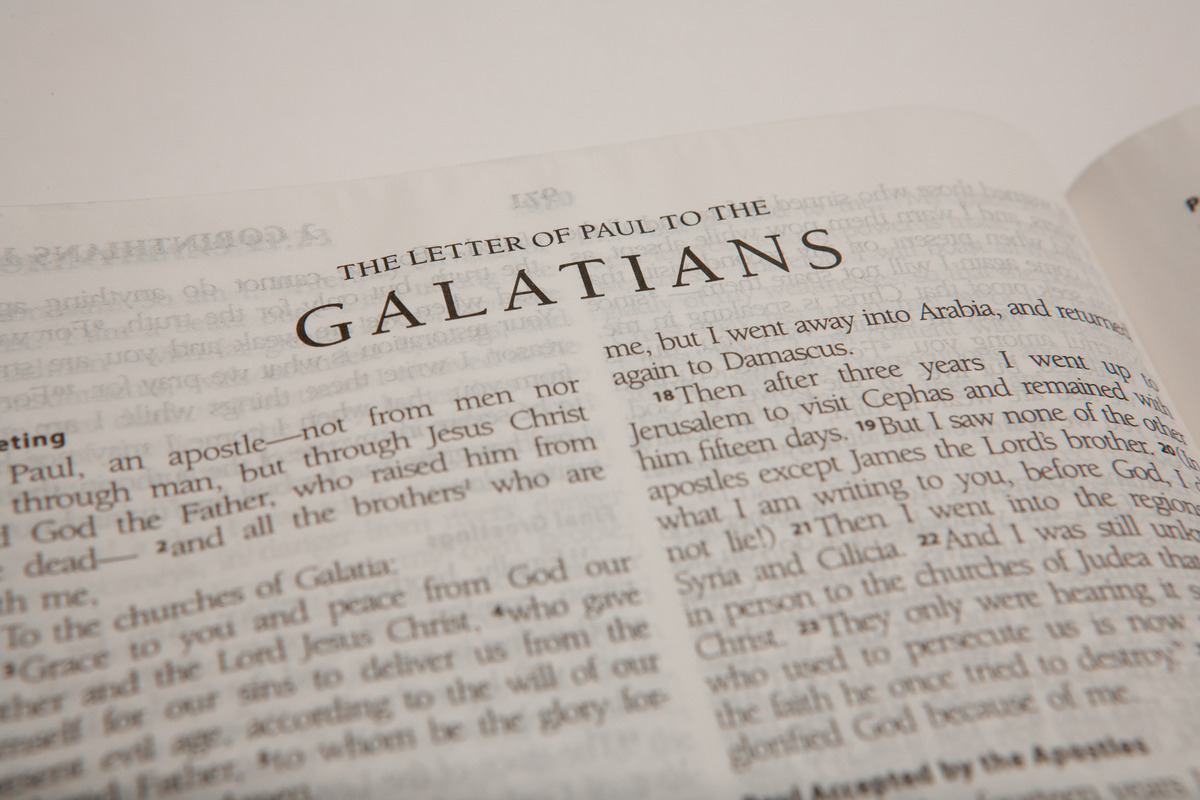"Saved Through the Grace of the Lord Jesus Christ" -- Acts 15:6-29 (A Postscript to Our Sermons on Galatians)
 Wednesday, February 13, 2019 at 10:19AM
Wednesday, February 13, 2019 at 10:19AM 
A Postscript to Sermons on the Book of Galatians
What happened after Paul sent his letter to the churches in Galatia? We don’t know what happened in the specific congregations receiving Paul’s Galatian letter, but we do know how the church at large reacted to Paul’s rebuke of the heretical movement we know as the “Judaizers.” In Acts 15, Luke recounts what has come to be known as the “Jerusalem Council” when Paul, and the apostles Peter, and James, along with the elders of the church addressed the Judaizing heresy. This is one the most important turning points in the Book of Acts and goes a long way to help us see how the early church governed itself and dealt with heresy. The Jerusalem Council reached complete agreement about the gospel Paul preached to the Gentiles–all people (Jew or Gentile) are saved the same way, by grace alone through faith alone, on account of Christ alone.
We know from Paul’s Galatian letter, as well as the account we will discuss in this sermon, the Judaizers were dividing the church by misrepresenting the teaching of the Apostle James (in his epistle), and then pitting James against the preaching of Paul. The Judaizers claimed that James and Paul disagreed about how sinners are “justified” (or given a right standing before God), and that James was right, and Paul was wrong. What transpires during the Jerusalem Council goes along way toward reconciling James’ prior statement in James 2:14-17: “What good is it, my brothers, if someone says he has faith but does not have works? Can that faith save him? If a brother or sister is poorly clothed and lacking in daily food, and one of you says to them, “Go in peace, be warmed and filled,” without giving them the things needed for the body, what good is that? So also faith by itself, if it does not have works, is dead,” and Paul’s seemingly conflicting comments in Galatians 2:16: “yet we know that a person is not justified by works of the law but through faith in Jesus Christ, so we also have believed in Christ Jesus, in order to be justified by faith in Christ and not by works of the law, because by works of the law no one will be justified.”
The Jerusalem Council was called by the apostolic church because Paul’s first missionary journey throughout Asia Minor (Eastern Turkey) had been a huge success. Through the proclamation of the gospel, as well as through the demonstration of his miraculous power, God confirmed the still largely Jewish church’s mission to the Gentiles. The result was a harvest of Gentile converts to Jesus Christ. But it was not long after that the Judaizers and “the party of the circumcision” took issue with Paul, insisting that Gentile converts live as Jews–they submit to circumcision, keep the Jewish dietary laws, and observe Jewish feasts. Gentiles must believe in Jesus but obey Moses, if they are to be justified.
The statements by James, the teaching of Paul, and the attack upon Paul’s gospel by the Judaziers must be addressed if Jew and Gentile were to coexist in Christ’s church. If there was to be clarity about the gospel, this fundamental question must be settled; “what place does obedience to the law of Moses and ritual circumcision play in relationship to the gospel of free grace and justification?” Are Gentiles to obey the law of Moses and submit to circumcision in order to be saved? If not, how are Gentile Christians to relate to Jewish believers within in the New Israel, the new society, the mystical body of Jesus Christ, which is the church, created by God himself, through the proclamation of Christ crucified?
Most historians date the Jerusalem conference in the year A.D. 49, shortly after Paul had written Galatians. But the tensions which led to the council had been present for some time. By the time the Council of Jerusalem meets, the first missionary journey was completed with Paul and Barnabas staying on in Antioch (a city in southeastern Turkey). The sheer number of converts proved God was calling Gentiles to faith in Jesus. It also become clear that Israel’s own prophets foretold in the last days (still hundreds of years distant when they wrote) the Gentiles would share in the promises which God made to Israel. In Genesis 22:18, God promised to bless all the nations of the earth through Abraham. The prophet Isaiah (49:6) saw a coming age in which the Servant of the Lord–who is none other than Jesus of Nazareth–will be a light to the Gentiles and will bring salvation to the ends of the earth. The prophet Zephaniah (3:9-10) revealed that in the messianic age, the Messiah himself would purify the lips of the assembled nations, and all of those gathered would call upon the name of the Lord. Zechariah (8:22) spoke of an age when the nations would assemble at Jerusalem seeking the Lord almighty. “Yes,” Israel’s God will bless the Gentile nations. But he will bless those nations through Israel. The question now being answered is how.
To read the rest of this sermon: Click Here


Reader Comments